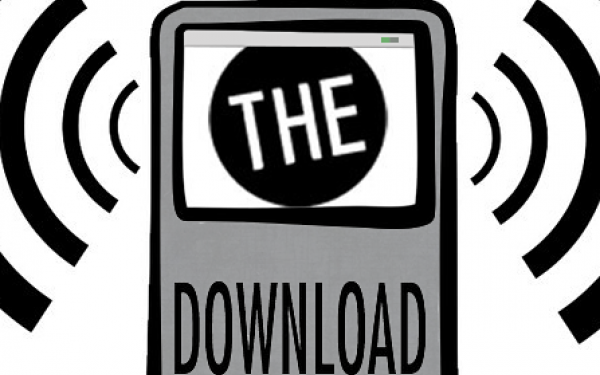A False Idol
Why We Need More Awareness About Study Drugs
Let’s say you have a midterm tomorrow. You’ve studied, but you haven’t really studied.
Plus there were those two weeks at the beginning of the semester that still felt like summer and well, class wasn’t exactly on your list of priorities. It’s safe to say that at this point you’re stressing, and definitely not finessing.
If you had the option to drink a magic potion that allowed you to learn everything for your exam in one day, would you take it? What if it was illegal with extremely dangerous and vastly unknown consequences?
Well folks, this hypothetical potion exists, and demand for it is only going up.
You probably know it as Adderall, Ritalin, Concerta or Vyvanse. An article by David Easey in last week’s issue of The Link told us everything we need to know about these prescribed drugs: they are used to treat Attention Deficit Hyperactive Disorder or ADHD, and when you take them without a prescription, they can increase your dopamine levels, apparently allowing you to absorb information faster than Usain Bolt can run 100 metres (well maybe not that fast, but you get the picture).
McGill student Olivier (last name withheld) told me he uses Adderall when he needs to study and get things done.
“I feel ecstatic about everything I do and accomplish. It probably makes me more like a loner because I only have one thing on my mind,” he said.
“In Canada, stimulants like Adderall are Schedule I drugs of the Controlled Drugs and Substances Act,” said Gabriella Szabo, health promotion specialist at Concordia. “Possession of a scheduled substance is a contravention of the Act, and there are penalties. Simply put, it is illegal to use a prescription medication without a prescription.”
Nevertheless, the reason for temptation is clear. I feel as though every student around me uses Adderall or Ritalin to get through exam season or write a 12-page essay—but being overwhelmed with school does not mean they should put their health at risk.
The problem isn’t whether using study drugs to get better grades is cheating, because there is no proven correlation between use of study drugs and higher grades. Instead, what needs to be improved is the users’ awareness of the consequences of taking them.
As it’s illegal to use study drugs, and their consequences are unknown, not everyone using them knows what constitutes a proper dose. This leads to terrible events. A Concordia student who wishes to remain anonymous (we’ll call her Lizzy) took 25mg the first time she took Adderall, before writing an exam.
“On that much Adderall, I couldn’t focus on anything. My train of thought wandered. I couldn’t find connections easily between my sentences. It was extremely stressful and I felt like my mind was going way too fast, in a hundred directions,” Lizzy said. “And then [I experienced] physical symptoms like a racing heart, very sweaty palms, an extremely dry mouth, unquenchable thirst, and difficulty steadying my breath. The general anxiety of the exam environment was definitely intensified.”
“Adderall made me feel like I was on MDMA. I couldn’t sleep for 2 days, chewed my mouth up, didn’t eat for 48 hours, and peed every hour. It was fucked up,” she said.
In a makeshift Facebook callout asking if anyone had experienced a particularly bad experience on ADHD medication, comments ranged from “Who hasn’t?” to “I give it four thumbs up.” Talking to people in more detail brought some chilling stories to my attention.
Another Concordia student who chose to remain nameless told me about her experience with taking a much higher dose than recommended, again 25mg.
“Adderall made me feel like I was on MDMA. I couldn’t sleep for 2 days, chewed my mouth up, didn’t eat for 48 hours, and peed every hour. It was fucked up,” she said.
A common thread I found between these stories was that use of drugs led to marijuana use to balance the effects, especially to help the users sleep.
When asked if he got a comedown from using Adderall, Olivier had this to say: “I get more irritable and feel drained but awake at the same time. If I didn’t smoke weed it would keep me up later.”
Lizzy had similar experiences. Even after her nightmarish first time using Adderall, she continued to use the drug afterward, but with more caution and never for an exam. “They work in a pinch if I need to cram but it’s not worth the added anxiety. If I do use [Adderall], I have to smoke weed the whole time. Then I’m calm but have a bit more focus than normal,” she said.
University is designed to prepare students for the real world, the working world. Exams may be hard, but there is no doubt that the real world is harder. Students who use these drugs are ignoring the negative side and setting themselves up for a life of taking the easy way out—which we all know, does not always work.
“Learning is about absorbing information and being able to apply it to situations,” said Gabriella Szabo. “A pill cannot do anything about that understanding.” Despite there being no policy on the misuse of prescription drugs at Concordia, because it’s nearly impossible for students to get caught using them, Szabo said the risk of harm is greater than the benefit in using them. “A federal law is already in place, not an institutional policy,” Szabo said.
The craziest part of this whole epidemic is that people are using study drugs as a replacement for cocaine at parties and bars, despite the fact that stimulants shouldn’t be mixed with other substances including alcohol, marijuana or even caffeine.
It’s a safe bet to guess that if someone is studying, they’ve probably had a coffee or two to keep them going. Caffeine and study drugs mixed together could be detrimental to your health, let alone smoking weed to calm yourself down or snorting the drug up your nose and drinking seven beers.
Ultimately, there should be a push for increased awareness surrounding these drugs. Concordia’s policies on study-enhancing drugs are non-existent because, according to studies, they do not influence academic ability. This lack of policy unfortunately means there is less of an incentive for students to avoid doing them.
For the benefit of the growing number of students who are in danger of harming themselves, getting in trouble with the law, or growing dependent on study drugs, Concordia needs stay relevant, by providing resources tailored to those who feel they cannot succeed without the help of stimulants.
Correction: An earlier version of this article compared various study drugs to Adderall and listed Ritalin, Concerta and Vyvanse as amphetamines. In reality they are amphetamine-like substances. Concerta and Ritalin are methylphenidate, not amphetamines. Vyvanse contains dextroamphetamine. All references to these drugs have been changed to “study drugs.” The Link regrets the error.





.WEB_600_375_90_s_c1.jpg)

_600_375_90_s_c1.jpg)